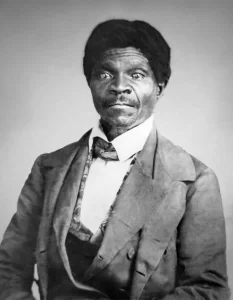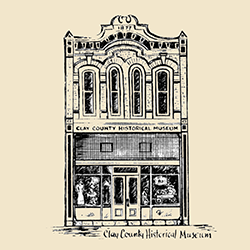 The first Negro History week was created by historian Carter G. Woodson and the Association for the Study of Negro Life and History 1926. Fifty years later in 1976, President Gerald Ford issued the first African American History Month proclamation, as has every president since. February is the month we honor the legacies of African Americans to our country’s history. Missouri was the home to one such man who made an unintentional contribution of major proportions to the advancement of our county. Dred Scott.
The first Negro History week was created by historian Carter G. Woodson and the Association for the Study of Negro Life and History 1926. Fifty years later in 1976, President Gerald Ford issued the first African American History Month proclamation, as has every president since. February is the month we honor the legacies of African Americans to our country’s history. Missouri was the home to one such man who made an unintentional contribution of major proportions to the advancement of our county. Dred Scott.
Most everyone has heard of Dred Scott and the Dred Scott decision. A seemingly simple petition for freedom led to an eleven-year battle for Dred Scott and his wife, Harriet. Simple because it used a law stating that slaves taken to live in a state or territory of “free soil” were considered free. And a standard practice in Missouri was “once free, always free” which had been upheld many times. The Scotts and their lawyer were confident of a quick victory. Instead, the case carried them all the way to the Supreme Court of the United States and that court’s decision influenced abolitionists in their resolve to end the practice of slavery with the support of others not in the movement.
Three years after the Scott’s lost in the St. Louis Circuit Court, with an appeal to the Missouri Supreme Court a new trial in the circuit court found in their favor. This after fire, cholera and multiple changes in lawyers hampered their case. But on appeal by former owner Irene Emerson, the Supreme Court remanded the Scotts back into slavery pending their hearing. Politics had entered the proceedings with the justices, two of whom were pro-slavery, being influenced by their own convictions over legal precedents.
In 1852 with new justices on the court, the Missouri Supreme Court reversed the decision of the lower court. The Scotts remained slaves. A trip through the US Circuit Court led back to the Supreme Court which finally ruled that Dred Scott was of African descent and a slave, so he was not a citizen and not entitled to bring the original suit. A simple petition for freedom had become a national tragedy with justice being replaced by the politics of the time. The move to civil war was most likely hastened by this verdict. It made people take sides of an issue many had previously ignored. The 13th and 14th Amendments overrode the court’s decision.
The Scott’s gained their freedom the following year, 1857 due to Irene Emerson’s marriage to abolitionist and Congressman Dr. Calvin Chaffee who returned them to their original owners who had already financed their fight for their freedom and emancipated them. Their eleven-year fight for freedom was at an end.
Other well know African Americans include early Americans such as Harriet Tubman, Sojourner Truth, Fredrick Douglass, and Crispus Attucks as well as later innovators like George Washington Carver, W.E.B. Dubois, Rosa Parks, Langston Hughes and Rev. Dr. Martin Luther King Jr. There are many more people that made significant contributions but whose names are less well known. Senator Blanche Bruce of the 1875 U.S. Senate, Dr. Charles Drew who began blood banks using plasma, explorer Matthew Henson and inventor Madam C.J. Walker to name a few. We could all add to this list and our lives today are better for their works.
Chery Carr Holtman
Missouri State Archives, Missouri’s Dred Scott Case, 1846-1857; accessed 3/12/23: http://www.sos.mo.gov/archives/resources/africanamerican/scott/scott.asp
